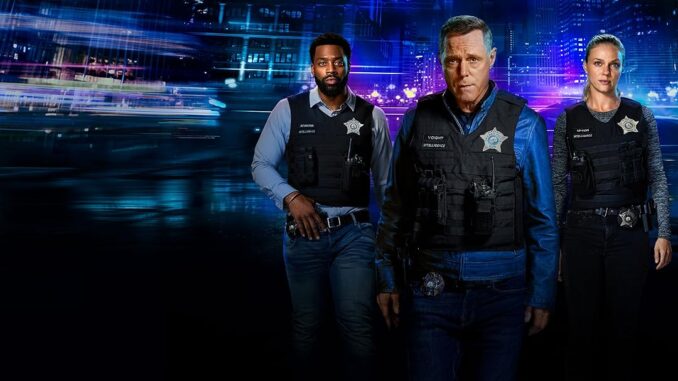
The Gray Area of Justice: Voight vs. Reid in "Greater Good"
Season 12 Episode 15 of Chicago P.D., "Greater Good," presents a compelling and ethically fraught clash of ideologies, epitomized by the tense standoff between Sergeant Hank Voight and Detective Hailey Upton (Reid). More than just a procedural crime drama, the episode delves into the murky waters of moral ambiguity, forcing viewers to confront the uncomfortable reality that justice is rarely black and white, and often necessitates compromising personal values. This collision course, driven by the desperate circumstances surrounding a kidnapped child, lays bare the fundamental differences in Voight and Upton's approaches to policing, highlighting the complex and often conflicting demands of the "greater good."
From the outset, the episode is steeped in urgency and desperation. The abduction of a young girl, Lily, sets off a frantic search, pushing the Intelligence Unit to its limits. This pressure intensifies the existing tension between Voight and Upton, already simmering due to her past transgression – concealing Roy Walton's murder. The desperation fuels Voight's unwavering belief in using whatever means necessary to save Lily, even if it means bending or breaking the law. He operates on the principle that the end justifies the means, a philosophy that has defined his career and often yielded results, albeit with a heavy moral cost.
Voight's methods are on full display as the investigation progresses. He leverages informants, intimidates suspects, and blurs the lines of legality, all in the pursuit of Lily. His actions are not inherently malicious; he genuinely believes he is doing what is necessary to protect the innocent. However, this conviction blinds him to the potential consequences of his actions, the erosion of the rule of law, and the potential for collateral damage. In his mind, Lily's life outweighs all other considerations, justifying any shortcut taken along the way.
In stark contrast to Voight's pragmatism, Upton grapples with a profound moral dilemma. Haunted by her own past actions, she strives to adhere to ethical boundaries, believing that upholding the law is paramount, even in the face of tragedy. She sees the potential for Voight's methods to backfire, creating a slippery slope where justice becomes subjective and easily manipulated. She believes that sacrificing principles in the name of expediency ultimately undermines the very foundation of law enforcement.
This ideological divide culminates in a pivotal moment when Voight, pursuing a promising lead, coerces a suspect into confessing by threatening to harm his family. Upton, witnessing this act, is torn. The information extracted from the suspect could lead them to Lily, but the methods employed are undeniably wrong. This internal conflict explodes in a powerful confrontation with Voight, where she challenges his methods, accusing him of overstepping his bounds and compromising his integrity.
The beauty of the episode lies not in resolving this conflict neatly, but in highlighting its inherent ambiguity. Ultimately, Voight's aggressive tactics do lead them to Lily, saving her life and bringing the kidnappers to justice. In the immediate aftermath, Voight is vindicated, his methods seemingly justified by the positive outcome. However, the episode leaves the viewer pondering the long-term implications of his actions. Has he truly achieved the "greater good," or has he simply perpetuated a cycle of violence and moral compromise?
Upton, despite acknowledging the positive outcome, remains unconvinced. She understands that while Lily was saved, Voight's actions set a dangerous precedent, potentially paving the way for future abuses of power. Her unwavering commitment to ethical policing, though seemingly less effective in this particular instance, serves as a crucial counterbalance to Voight's utilitarian approach. She embodies the conscience of the unit, constantly reminding them of the importance of upholding the law, even when the stakes are high.
"Greater Good" doesn't offer easy answers or simplistic solutions. Instead, it presents a nuanced portrayal of the complex and often contradictory demands of law enforcement. The showdown between Voight and Upton is a microcosm of a larger societal debate about the balance between security and liberty, the ethics of policing, and the very definition of justice. It reminds us that the pursuit of the "greater good" is a constant negotiation, requiring vigilance, critical thinking, and a willingness to confront uncomfortable truths about the choices we make and the consequences they entail. In the end, the episode leaves us pondering the question: At what cost does the "greater good" truly come?
